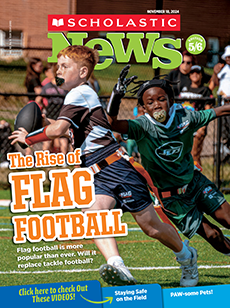1. Based on the article, what does it mean to be eligible to vote? What are the basic requirements to vote in the U.S.?
Based on the article, being eligible to vote means meeting the necessary requirements to vote. The article explains that these basic requirements are being a U.S. citizen, being at least 18 years old on Election Day, and being registered to vote.
R.4 Determine Meaning
2. What are two ways that voting rights in the U.S. have changed over time, according to the article?
Sample response: The article states that in 1789, only about 6 percent of the population was allowed to vote—mostly White men who owned land. Ways that voting rights have changed over time include Black people and women gaining the right to vote.
R.5 Comparison
3. Describe two methods people may use to cast their votes on Election Day.
Two methods people may use to cast their votes on Election Day are filling out a paper ballot and marking boxes for the candidates of their choice on a computer screen.
R.2 Key Details
